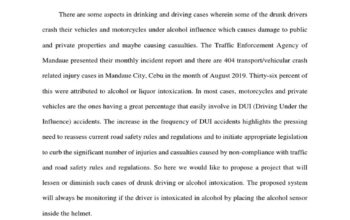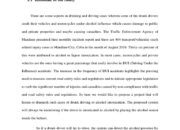Scientific inquiry is often regarded as a bastion of integrity and truth-seeking, a disciplined pursuit wherein empirical evidence serves as the lodestar guiding researchers. However, beneath this façade of unassailable credibility lurks an unsettling truth: fraud in the lab. This phenomenon, often cloaked in obfuscation, represents a profound ethical breach that undermines not only individual institutions but the very foundation of scientific progress itself. The exploration of lab fraud encompasses various dimensions, including its definitions, manifestations, underlying causes, repercussions, and strategies for mitigation.
At its core, scientific fraud can be delineated as the intentional fabrication, falsification, or plagiarism of data. Such malfeasance may present itself in numerous forms. For instance, researchers may fabricate results to gain a competitive edge in the race for funding or prestige. They may alter data sets to generate statistically significant results, or even engage in ghostwriting where another’s work is claimed as one’s own. Each manifestation of fraud not only skews the veracity of scientific literature but also erodes public trust in scientific authority.
The psychological and sociocultural factors contributing to lab fraud are complex and multifaceted. The immense pressure to publish can create an environment where aspiring scientists prioritize quantity over quality. Such a milieu, often summarized by the adage “publish or perish,” may induce researchers to abandon ethical considerations in favor of expediency. Moreover, the competitive nature of academic institutions fosters an environment where the relentless pursuit of recognition and funding may outstrip the commitment to ethical research practices.
Economic factors also play a critical role in the proliferation of fraudulent behavior. The allocation of resources for research and development is highly competitive, and the prospect of lucrative grants and sponsorships can corrupt the scientific ethos. A researcher faced with an inability to secure funding may be tempted to manipulate results to ensure continued financial support. This precarious balance between financial stability and ethical integrity reveals the often-harrowing landscape in which scientists operate.
The ramifications of scientific fraud extend far beyond the individual perpetrator. When fraudulent research is published, it can mislead subsequent studies, setting a cascade of misconceptions into motion. This not only wastes valuable resources but potentially endangers public health if erroneous conclusions influence medical guidelines or regulatory policies. Pharmaceutical companies, for example, may rely on falsified studies when determining the efficacy of new drugs, leading to grave health risks for patients.
Beyond the immediate consequences, the repercussions for the scientific community are profound. A singular instance of fraud can tarnish the reputation of an entire institution, inciting broad mistrust among the public. Public skepticism toward scientific findings can erode support for critical research initiatives that depend on public funding and acceptance. In an era characterized by rapid advancements in technology and medicine, the loss of public trust serves as a destabilizing force, threatening to impede progress across diverse fields.
To combat lab fraud, a multi-pronged approach is necessary. The establishment of robust regulatory frameworks that promote transparency and accountability in research practices is paramount. This could involve implementing stringent peer review processes that scrutinize experimental methods and data reporting. Such systems should aim to foster an environment where reproducibility and verification of results are prioritized.
Moreover, institutional policies should prioritize education around ethical research practices. Encouraging open dialogue about the ethical implications of research can demystify the pressures that lead to fraud. Workshops, training sessions, and a curriculum that emphasizes integrity in scientific inquiry can lay the groundwork for developing a culture of honesty and accountability.
The integration of technology in fraud detection offers another powerful tool in confronting this issue. Advanced algorithms and big data analytics can be utilized to identify anomalies in datasets that may indicate malpractice. Additionally, blockchain technology presents a novel avenue for preserving research integrity by creating immutable records of data entries, thereby deterring potential misconduct.
Furthermore, fostering collaborative research environments may mitigate instances of fraud. Multidisciplinary projects that involve diverse teams can encourage rigorous checks and balances, making it more difficult for individuals to engage in unethical practices unnoticed. Collaboration cultivates a culture of shared responsibility in research, emphasizing the importance of collective credibility.
In confronting the dark side of science, it is essential to acknowledge the human element within the research process. The relentless pursuit of knowledge is fraught with challenges, and creating an atmosphere where scientists feel supported rather than pressured may diminish the allure of fraudulent behavior. Promoting mentorship and promoting a healthy work-life balance is vital in cultivating resilience among researchers, enabling them to withstand the pressures of academia without compromising ethical standards.
In conclusion, addressing lab fraud necessitates a comprehensive reassessment of how scientific research is conducted, evaluated, and disseminated. By fostering a culture of integrity, transparency, and collaboration, the scientific community can reclaim its foundational principles. While the struggle against fraud in the lab is fraught with challenges, it also presents an opportunity for revitalization within the scientific enterprise. Confronting these dilemmas head-on may ultimately pave the way for a more authentic and venerable scientific practice.












